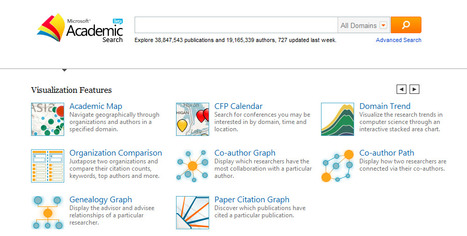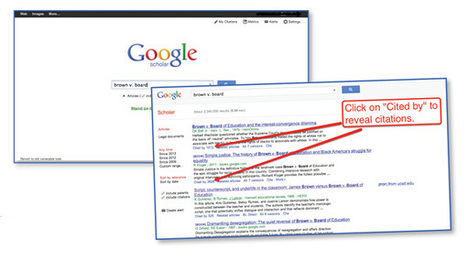Joyce Valenza provides a look at three "relatively new options" in searching that may be new to you. She looks at Google Scholar which has a "Making New Connections" component; Microsoft's Academic Search, which "offers the added value of allowing searchers to select one or more domains or disciplines and to filter by subdomain, publication, author, source type, organization, or keyword." In addition they also have new "data visualization features that offer searchers and scholars a view of the scholarly patters and relationships, highlighting critical links that help define scientific research."; and Mendeley, " a tool for the individual researcher and the opportunity to participate in research communities to share intelligence within a field of study."
For more information on all three tools check out the article.



 Your new post is loading...
Your new post is loading...












To Google or not to Google...that is the question. I fall on the side of teaching students how to use other search engines for a number of reasons including tracking and filter bubbles. This post explores seven academic search engines.
A short description of each search engine is provided as well as links to each. There is also a link to an earlier post that looked at 100 databases and search indexes.